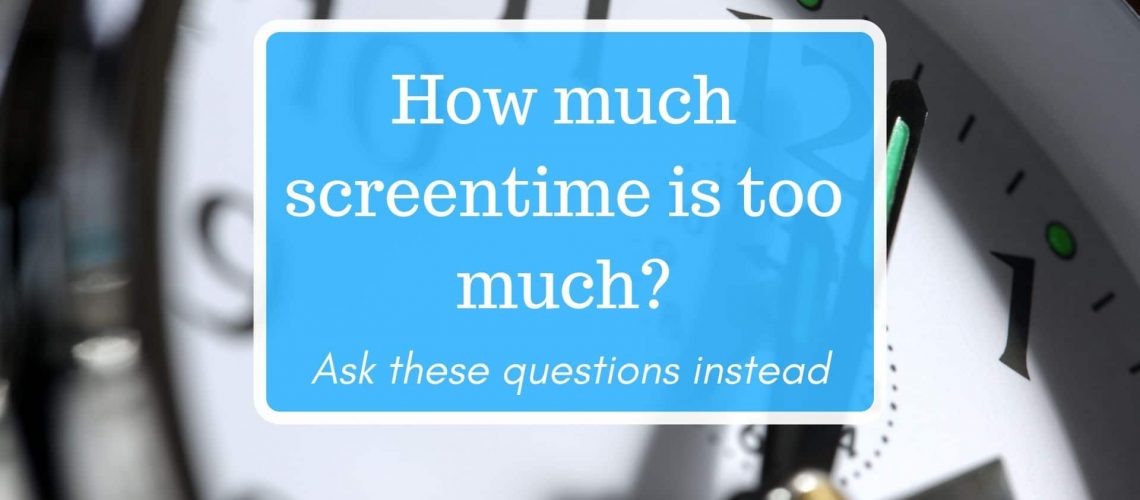When it comes to our children’s use of the screens the focus for many is to look at issues of overuse and concentrate on ways to keep device use under control. We ask questions like how much is too much? What time limits should I set? How many hours for a pre-schooler or a primary student? A tween? A teen? How Do I get them to unplug, turn it off, do their homework?
Certainly wanting to curtail obsessive use and ensure there is plenty of time for other necessary life experiences is a valid motive for parents. These questions may well be necessary in a world where screens and devices have become so firmly entrenched in so many aspects of our lives.
But there are also other more pertinent questions we need to be asking of young people’s screentime (and our own), rather than those that simply focus on ‘how much’.
Instead we need to look at:
What are they doing on the screens?
- Are they consuming copious amount of irrelevant, inappropriate content or are they researching, learning and developing ideas and thinking? (are they researching how to make a paper aeroplane to fly with their brother…or are they watching porn or violence…. A vastly different use of 30 minutes on youtube).
- Are they constantly consuming content or are they creating, making and producing their own content (are they watching some guy unbox toys for hours on end or are they creating a song on garageband or making a movie on imovie)?
- Are they playing a couple of quick video games after school to destress or have a social chat with their mates, or are they playing games that are inappropriate by nature, content and themes and leave them feeling aggressive.
- Are they sharing and consuming inspiring and positive media or are they feeding insecurities and damaging their sense of self worth?
- Are they showing responsibility, leadership, empathy or kindness with the content they share…or are they disrespecting themselves or others?
- Are they left alone for hours on their own shut up in a room, or are parents sitting, engaging, pointing out, asking questions, inferring outcomes and connecting and bonding with their child together?
What effect is the screentime having on the individual child?
- Are they engaging in positive interactions, having a laugh with mates, building on their relationships or are they experiencing drama, bullying themselves or being bullied?
- Are they feeling happy when they turn off the screens or are they anxious, depressed or aggressive?
- Are they enjoying banter with friends and peers or are they feeling the pressure of trying to keep up and stay connected?
- Are they struggling to stand up for someone and avoid peer pressure or are they taking a stand for those who are unable?
- Is one’s already fragile self esteem constantly being compared to everyone who is prettier, smarter, more popular?
- Is the normally introverted shy child finding a voice online for a cause they are passionate about when they usually wouldn’t have the confidence?
What are they missing out on?
- Are they able to happily come to the dinner table, get plenty of sleep at night, and still do their chores and keep up with homework…or are they having a tantrum every time they are told to put away the device?
- Are they still engaging with friends and extra curricula activities they have always enjoyed or are they becoming reclusive and unengaged.
- Are they taking time to walk the dog after school, hang out with friends or siblings or are they staying inside in their room from the moment they get home until they are called for dinner?
- Are they having opportunities to reflect, to ponder things, to chill out, without feeling ‘socially switched on’ 24/7.
Devices are certainly here to stay for the foreseeable future and so we need to get smarter about how we all approach our screentime experiences. Looking at the cognitive, social and emotional effects, both positive and negative, as well as looking at the particular needs and circumstances of an individual child, will go a long way to getting the balance right and ensuring they remain in control of their screentime experiences.

